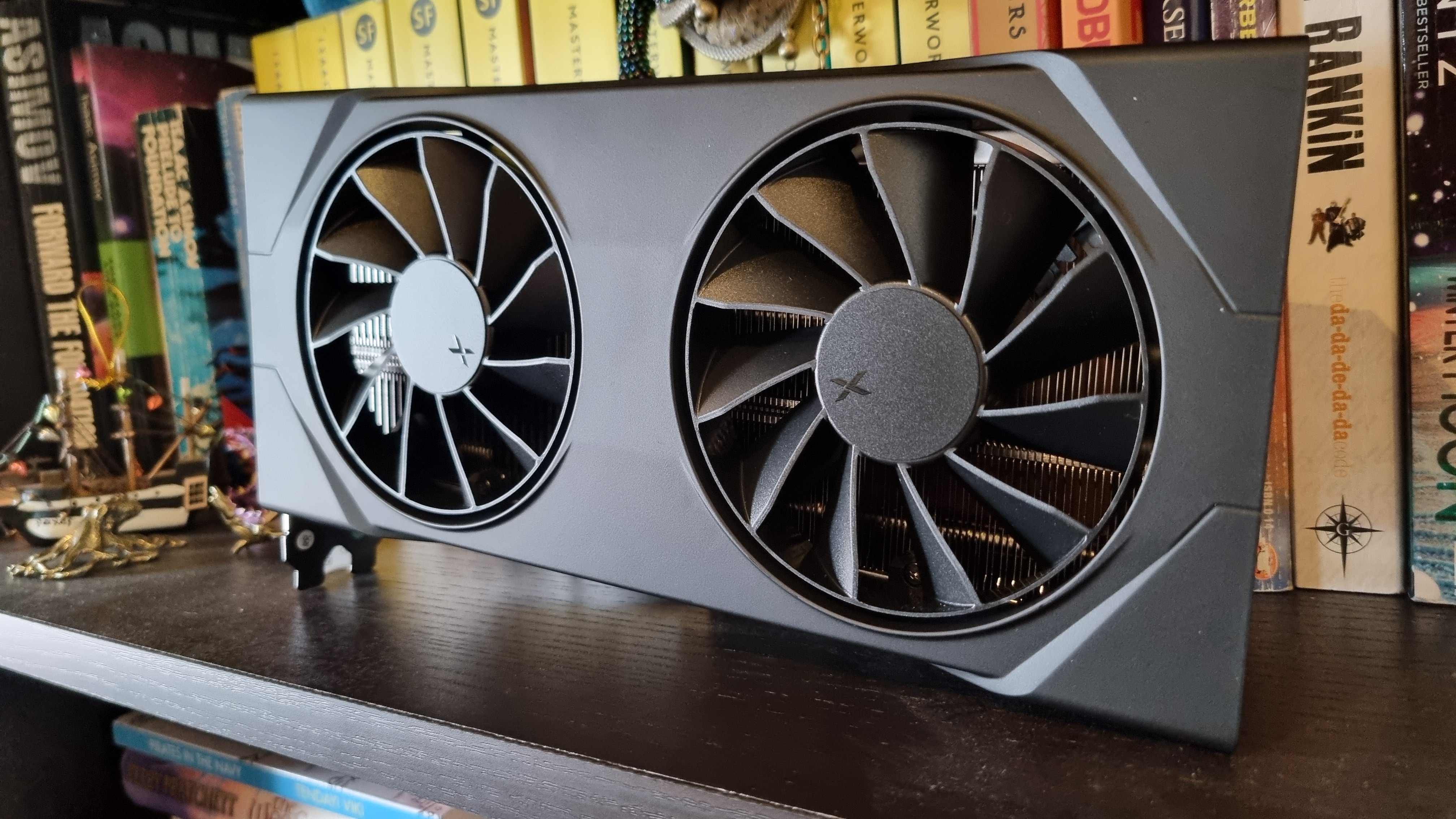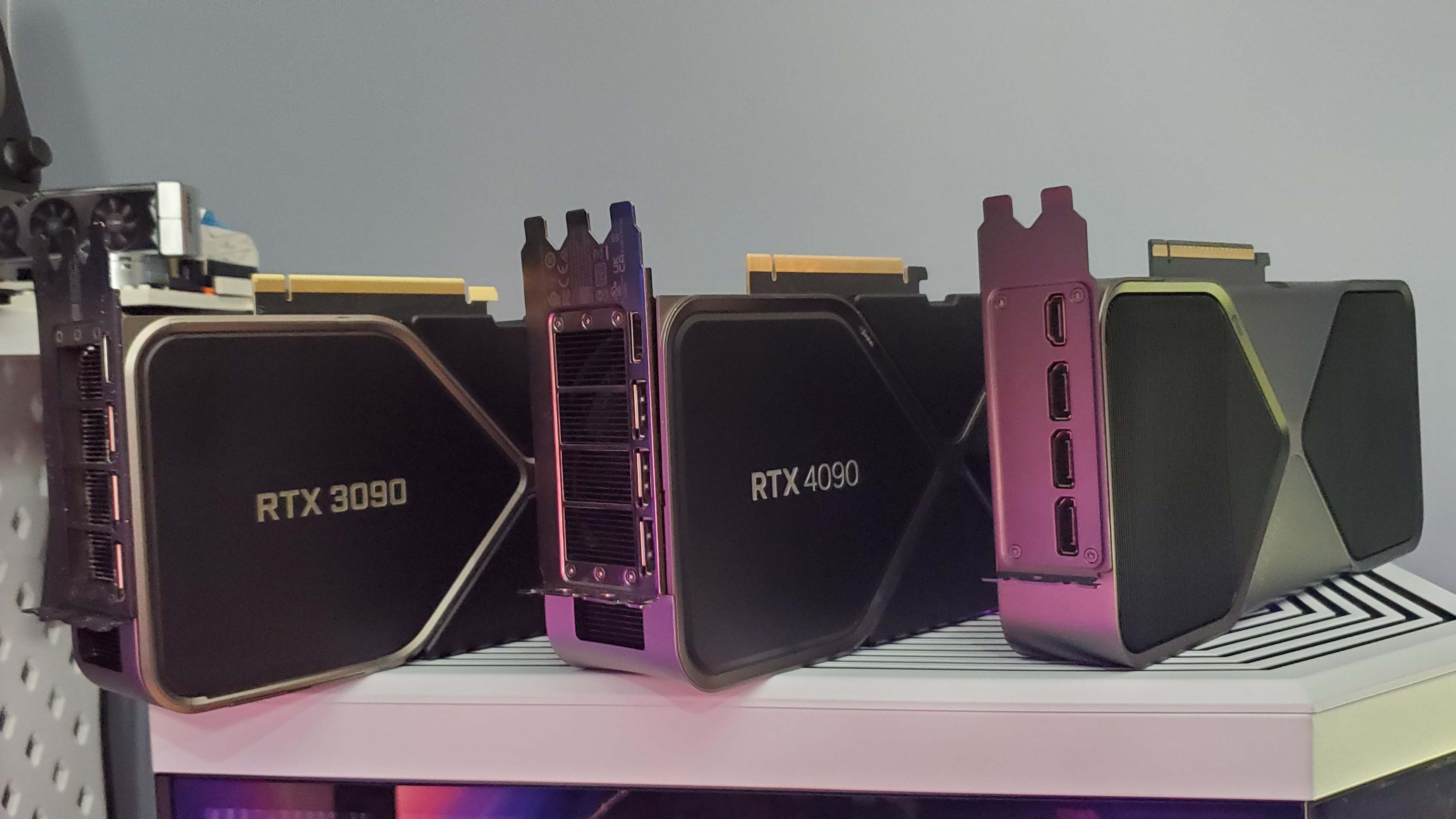Budget GPU launches over the last couple of months should have been received with mainstream excitement, but this has been hampered not just by real-world pricing issues but also by VRAM. Gamers haven't seemed particularly happy with 8 GB options, especially when first Nvidia and then AMD seemed to keep them away from the bulk of popular reviewers. And on this point, AMD claims to have an explanation.
Veritable PC hardware demigod Linus Tech Tips (LTT) has shared what is implied to be a communication from AMD with the company stating that the lack of 8 GB AMD Radeon RX 9060 XT graphics cards given to popular reviewers is due to "regional market demand." This is similar to what Nvidia has told us before.
Specifically, AMD says: "As for the 8 GB models, AMD has enabled global reviews of both 16 GB and 8 GB models of the Radeon RX 9060 XT based on regional market demand. So in short, yes, there are some other global publications that are receiving 8 GB models for testing."
We ourselves received just a 16 GB version of the new graphics card which launched yesterday, and it looks like most others received the same, with only a couple of reviewers being given an 8 GB version (Uniko's Hardware, for instance).
The concern is that AMD could be trying to limit review coverage of the 8 GB version because it knows it will be slated by the western media as not good enough for gaming in modern titles at higher resolutions than 1080p. As long as initial reviews are for the 16 GB version, positive opinion might be cemented (so the thinking goes).
8 GB can get you by at 1080p, and it can do less asset-rich games at higher resolutions, but you'll need more VRAM than that to make the most of some AAA games even at lower resolutions and even some non-AAA games at higher resolutions.
This is the same criticism that many pitched at Nvidia when it launched the RTX 5060 Ti and seemed to do the same as AMD has now done, limiting the number of 8 GB versions that go out for review. Then the RTX 5060 launched and that doesn't have a 16 GB version at all, nor did Nvidia seem keen on letting us review that one ahead of release.
Though it's worth noting the RTX 4060 Ti launched in 8 GB form first and 16 GB later, following consumer pressure to launch the higher VRAM version and despite Nvidia's protestations. Also AMD launched the 8 GB RX 7600 first last generation, followed by the 16 GB RX 7600 XT.
Chief architect of gaming solutions and gaming marketing at AMD, Frank Azor, has been defending the existence of 8 GB GPUs.

AMD's response to LTT implies that none of this is AMD trying to squash 8 GB reviews but is instead a simple matter of efficient distribution and marketing. If western markets don't tend to go for the 8 GB versions, and if the media responds negatively to them, then why ship samples out for review there? Companies don't have to ship review samples that they don't think will be beneficial from a business standpoint, after all.
This might be true, but it only shines a light on the question of why the western market might not have much time for an 8 GB version of the RX 9060 XT. And this, arguably, comes down to pricing. Moving down from 16 GB to 8 GB won't nerf performance massively in most games at 1080p or even 1440p, but the difference isn't inconsequential, either. And of course there's the question of longevity, too. Given this, it's reasonable that many might want more than a mere $50 saving for the 8 GB version compared to the 16 GB one.
Though even at the lower price, would some still be critical of an 8 GB card? You can't please everyone...

Best CPU for gaming: The top chips from Intel and AMD.
Best gaming motherboard: The right boards.
Best graphics card: Your perfect pixel-pusher awaits.
Best SSD for gaming: Get into the game ahead of the rest.
It's also worth noting that based on what Nvidia has told us, it shared this view. In a previous discussion, Nvidia had told us that the RTX 5060 Ti 8 GB was a good decision for markets outside the West; it's for a global audience.
None of this detracts from the prowess of the 16 GB versions such as the one we tested, of course. The RX 9060 XT is a great card for its $349 MSRP. That's $80 cheaper than the RTX 5060 Ti 16 GB and it outpaces the latter by 14–23% at both 1080p and 1440p depending on whether you use upscaling and frame gen.
All of this price talk could, of course, be rendered pointless over the coming weeks and months depending on what real-world prices are like outside of the mythical lands of MSRP. We'll have to wait and see.













 Bengali (Bangladesh) ·
Bengali (Bangladesh) ·  English (United States) ·
English (United States) ·